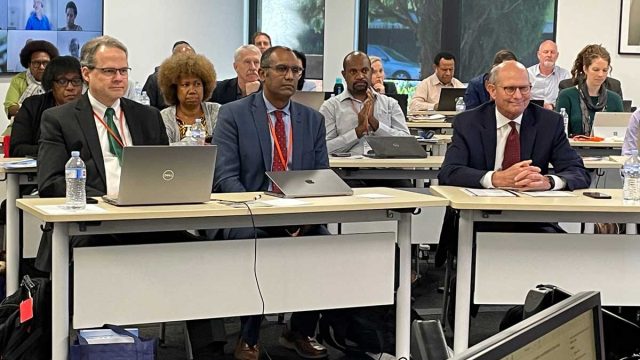Is there a connection?

I am upset to read the study published in the Adventist Review online1 suggesting that dairy products may protect against colorectal cancer. If it says “may,” why print the stuff? Why not suggest we should also drink alcohol?2
Thank you for the question and for your concerns. Although we did not write the report in question,3 you raise interesting and important points. One of the unwritten rules of our health columns is that Adventist World and Adventist Review (Ask the Doctors and House Call) are not the platforms for polemics. There is never an intent to upset readers or incite division. Our desire—and that of the publishers—is to share clearly, informatively, and factually the grace-filled and balanced health message entrusted to the Adventist Church.
Epidemiologic health studies and clinical trials that study the health of populations and patients often raise as many questions as they answer. The use of the word “may” is typically used in the conclusions of many such studies, as outcomes are not totally predictable in every individual. Additionally, in the study described in the report, two outcomes are being studied: the effects of calcium on the risk of colon cancer, and the risk of dairy on rectal cancer. These findings have emerged from data analysis on 77,000 Seventh-day Adventists enrolled in the Adventist Health Study 2 (AHS2). Much of these individuals’ calcium came from nondairy sources, allowing a more robust comparison. The word “may” does not indicate “fluffy” science as much as it conveys a strong association.
This brings us to the next issue: selective science. It is convenient, and even pleasing, to accept data that suit one’s viewpoint, persuasion, and conviction. We may be excited by the protective benefit of dairy in colorectal cancer, but grudgingly ignore the benefit of a total vegetarian diet in the reduction of the risk of prostate cancer. Integrity demands that we acknowledge the facts and carefully weigh the best applications. It is noteworthy that the population studied in AHS2 generally consumes less dairy than the average person in the United States.
Our Working Policy for the world church recommends a balanced vegetarian diet for our members. This includes a total vegetarian diet with adequate supplementation of vitamin B12 (always), and vitamin D (where needed), and a lacto-ovo vegetarian diet (includes the use of dairy products and eggs). The Adventist Health Ministries Department recommends that when dairy is part of the diet, it should be used sparingly—as a condiment, if you please—and that low-fat products take preference. We need to remember that we are a global church; many territories do not have economical vitamin B12-fortified dairy equivalents, nor easy access to supplementation. We therefore avoid vilifying dairy products, which provide such essential nutrients as vitamin B12 to our people living in such regions.
To compare dairy products to alcohol (with tongue in cheek) and suggest drinking it would also be healthful is unfortunate. There are indeed studies suggesting that there may be health benefits from alcohol; however, the consensus of all responsible bodies is overwhelmingly that alcohol is addictive, destructive, and, in fact, adds no advantage to an otherwise intentionally healthful lifestyle. The primary reason not to drink alcohol remains a spiritual constraint. Dairy is not in the same category.
Our desire is that we will be balanced and consistent and that we will in kindness and courtesy share the blessings of healthful living entrusted to us with all those we serve.
In our daily ministry we do well to remember Jesus’ words: “Listen and understand. What goes into someone’s mouth does not defile them, but what comes out of their mouth, that is what defiles them” (Matt. 15:10, 11, NIV).
Lord, guide what goes into my mouth, and please—filter that which comes out! n
1 www.adventistreview.org/church-news/story5444-consuming-dairy-may-protect-against-colorectal-cancers-study-says
2 This question has been abbreviated.
3 Yessenia Tantamango-Bartley, Synnove F. Knutsen, Karen Jaceldo-Siegl, Jing Fan, et al., Public Health Nutrition 20 no. 14 (October 2017): 2577-2586.
Peter N. Landless, a board-certified nuclear cardiologist, is director of Adventist Health Ministries at the General Conference.
Zeno L. Charles-Marcel, a board-certified internist, is an associate director of Adventist Health Ministries at the General Conference.








